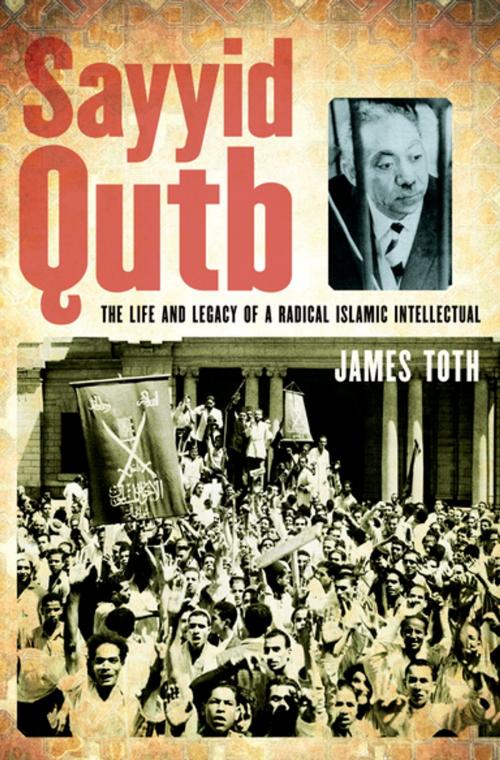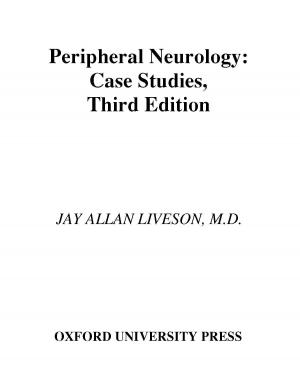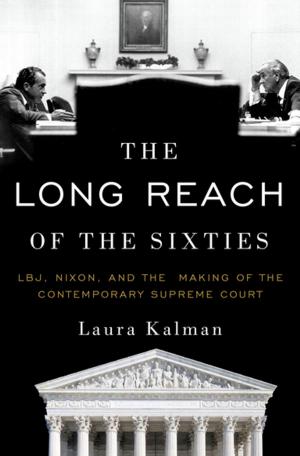Sayyid Qutb
The Life and Legacy of a Radical Islamic Intellectual
Nonfiction, Religion & Spirituality, Reference, Psychology of Religion, Christianity, Church, Church & State, Middle East Religions, Islam| Author: | James Toth | ISBN: | 9780199969609 |
| Publisher: | Oxford University Press | Publication: | March 6, 2013 |
| Imprint: | Oxford University Press | Language: | English |
| Author: | James Toth |
| ISBN: | 9780199969609 |
| Publisher: | Oxford University Press |
| Publication: | March 6, 2013 |
| Imprint: | Oxford University Press |
| Language: | English |
Sayyid Qutb is widely considered the guiding intellectual of radical Islam, with a direct line connecting him to Osama bin Laden. But Qutb has too often been treated maliciously or reductively-"the Philosopher of Islamic Terror," as Paul Berman famously put it in the New York Times Magazine. James Toth offers an even-handed account of Sayyid Qutb and shows him to be a much more complex figure than the many one-dimensional portraits would have us believe. Qutb first gained notice as a novelist, literary critic, and poet but then turned to religious and political criticism aimed at the Egyptian government and Muslims he deemed insufficiently pious. After a two-year sojourn in the U.S., he returned to Egypt even more radicalized and joined the Muslim Brotherhood, eventually taking charge of its propaganda operation. When Brotherhood members were accused of assassinating Egyptian President Gamal Abdel Nasser, the group was outlawed and Qutb imprisoned. He was executed in 1966, becoming the first martyr to the Islamist cause. Using an analytical approach that investigates without passing judgment, Toth traces the life and thought of Qutb, giving attention not only to his well-known Signposts on the Road, but also to his less-studied works like Social Justice in Islam and his 30-volume Qur'anic commentary, In the Shade of the Qur'an. Toth's aim is to give Qutb's ideas a fair hearing, to measure their impact, and to treat him like other intellectuals who inspire revolutions, however unpopular they may be. In offering a more nuanced account of Qutb, one that moves beyond the cartoonish depictions of him as the evil genius lurking behind today's terrorists, Sayyid Qutb deepens our understanding of a central figure of radical Islam and, indeed, our understanding of radical Islam itself.
Sayyid Qutb is widely considered the guiding intellectual of radical Islam, with a direct line connecting him to Osama bin Laden. But Qutb has too often been treated maliciously or reductively-"the Philosopher of Islamic Terror," as Paul Berman famously put it in the New York Times Magazine. James Toth offers an even-handed account of Sayyid Qutb and shows him to be a much more complex figure than the many one-dimensional portraits would have us believe. Qutb first gained notice as a novelist, literary critic, and poet but then turned to religious and political criticism aimed at the Egyptian government and Muslims he deemed insufficiently pious. After a two-year sojourn in the U.S., he returned to Egypt even more radicalized and joined the Muslim Brotherhood, eventually taking charge of its propaganda operation. When Brotherhood members were accused of assassinating Egyptian President Gamal Abdel Nasser, the group was outlawed and Qutb imprisoned. He was executed in 1966, becoming the first martyr to the Islamist cause. Using an analytical approach that investigates without passing judgment, Toth traces the life and thought of Qutb, giving attention not only to his well-known Signposts on the Road, but also to his less-studied works like Social Justice in Islam and his 30-volume Qur'anic commentary, In the Shade of the Qur'an. Toth's aim is to give Qutb's ideas a fair hearing, to measure their impact, and to treat him like other intellectuals who inspire revolutions, however unpopular they may be. In offering a more nuanced account of Qutb, one that moves beyond the cartoonish depictions of him as the evil genius lurking behind today's terrorists, Sayyid Qutb deepens our understanding of a central figure of radical Islam and, indeed, our understanding of radical Islam itself.















